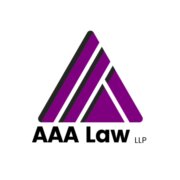Best Office Solutions Lawyers in Toronto
Share your needs with us, get contacted by law firms.
Free. Takes 2 min.
List of the best lawyers in Toronto, Canada
About Office Solutions Law in Toronto, Canada
Office Solutions Law in Toronto, Canada refers to the legal framework that governs the various aspects of office solutions, including office leasing, commercial real estate transactions, employment matters, and contract disputes related to office services. This field of law ensures that businesses and organizations in Toronto can operate efficiently and effectively within legal boundaries.
Why You May Need a Lawyer
There are several situations where seeking legal advice from a lawyer specialized in office solutions can be beneficial. Some common scenarios include:
- Office Lease Agreements: When negotiating or reviewing a lease agreement for office space, a lawyer can ensure that your rights and interests are protected.
- Employment Disputes: If you encounter issues with employees, such as wrongful termination, discrimination, or harassment claims, a lawyer can provide guidance and representation.
- Commercial Real Estate Transactions: Buying or selling office properties can involve complex legal procedures. A lawyer can help navigate the transaction and ensure all legal requirements are met.
- Contract Disputes: In case of disagreements or breaches of contract related to office services, a lawyer can assist in resolving the issues and protect your legal rights.
- Business Incorporation: When starting an office solutions business, legal advice can be crucial for ensuring compliance with relevant laws and regulations.
Local Laws Overview
It is important to be aware of the key aspects of local laws that are particularly relevant to Office Solutions in Toronto, Canada. Some important points to consider include:
- Tenant Rights: Office tenants have certain rights and protections under the Residential Tenancies Act, 2006, such as protection from unfair rent increases and eviction.
- Employment Laws: Employment standards, including minimum wage, hours of work, and vacation entitlements, are regulated by the Employment Standards Act, 2000.
- Commercial Real Estate Regulations: Sale and lease agreements for office spaces are subject to regulations outlined in the Commercial Tenancies Act, which governs the relationship between tenants and landlords.
- Contract Law: Contractual obligations in office solutions agreements are guided by the common law principles and the rules of contract interpretation.
- Business Regulations: Starting and operating an office solutions business must comply with various corporate and business laws, such as those outlined in the Ontario Business Corporations Act.
Frequently Asked Questions
1. Can I negotiate the terms of my office lease agreement?
Yes, lease agreements are negotiable. It is advisable to have a lawyer review the terms and negotiate on your behalf to ensure your interests are protected.
2. How can I resolve a dispute related to office services?
First, try to resolve the dispute through direct communication or negotiation. If that fails, consider mediation or arbitration. If necessary, you may need to seek legal recourse in civil court.
3. What laws protect employees in Toronto, Canada?
The Employment Standards Act provides minimum standards for employees, including provisions related to wages, hours of work, public holidays, and termination. Additional protections may exist under human rights legislation.
4. What are the steps to incorporate my office solutions business in Toronto?
To incorporate a business in Toronto, you will need to choose a business name, complete the necessary registration forms, pay the required fees, and submit the documents to the appropriate authorities, such as the Ontario Ministry of Government and Consumer Services.
5. How can I ensure compliance with health and safety regulations in my office?
Consult the Occupational Health and Safety Act to understand your obligations. Implement appropriate policies, procedures, and training to maintain a safe and healthy work environment for your employees.
Additional Resources
For further information and assistance regarding Office Solutions law in Toronto, Canada, you may find the following resources helpful:
- Law Society of Ontario - www.lsuc.on.ca
- Office of the Attorney General of Ontario - www.attorneygeneral.jus.gov.on.ca
- Toronto Real Estate Board - www.trebhome.com
- Ontario Ministry of Labour - www.labour.gov.on.ca
Next Steps
If you require legal assistance in the field of Office Solutions, follow these steps:
- Identify your specific legal concern or issue related to office solutions in Toronto.
- Research and review reputable lawyers or law firms that specialize in office solutions law.
- Contact the chosen lawyer to schedule a consultation or inquire about their services.
- During the consultation, provide all relevant details and ask questions to understand your options and the potential outcomes.
- Based on the consultation, decide whether to retain the lawyer's services and proceed with further legal action, if necessary.
Lawzana helps you find the best lawyers and law firms in Toronto through a curated and pre-screened list of qualified legal professionals. Our platform offers rankings and detailed profiles of attorneys and law firms, allowing you to compare based on practice areas, including Office Solutions, experience, and client feedback.
Each profile includes a description of the firm's areas of practice, client reviews, team members and partners, year of establishment, spoken languages, office locations, contact information, social media presence, and any published articles or resources. Most firms on our platform speak English and are experienced in both local and international legal matters.
Get a quote from top-rated law firms in Toronto, Canada — quickly, securely, and without unnecessary hassle.
Disclaimer:
The information provided on this page is for general informational purposes only and does not constitute legal advice. While we strive to ensure the accuracy and relevance of the content, legal information may change over time, and interpretations of the law can vary. You should always consult with a qualified legal professional for advice specific to your situation.
We disclaim all liability for actions taken or not taken based on the content of this page. If you believe any information is incorrect or outdated, please contact us, and we will review and update it where appropriate.














